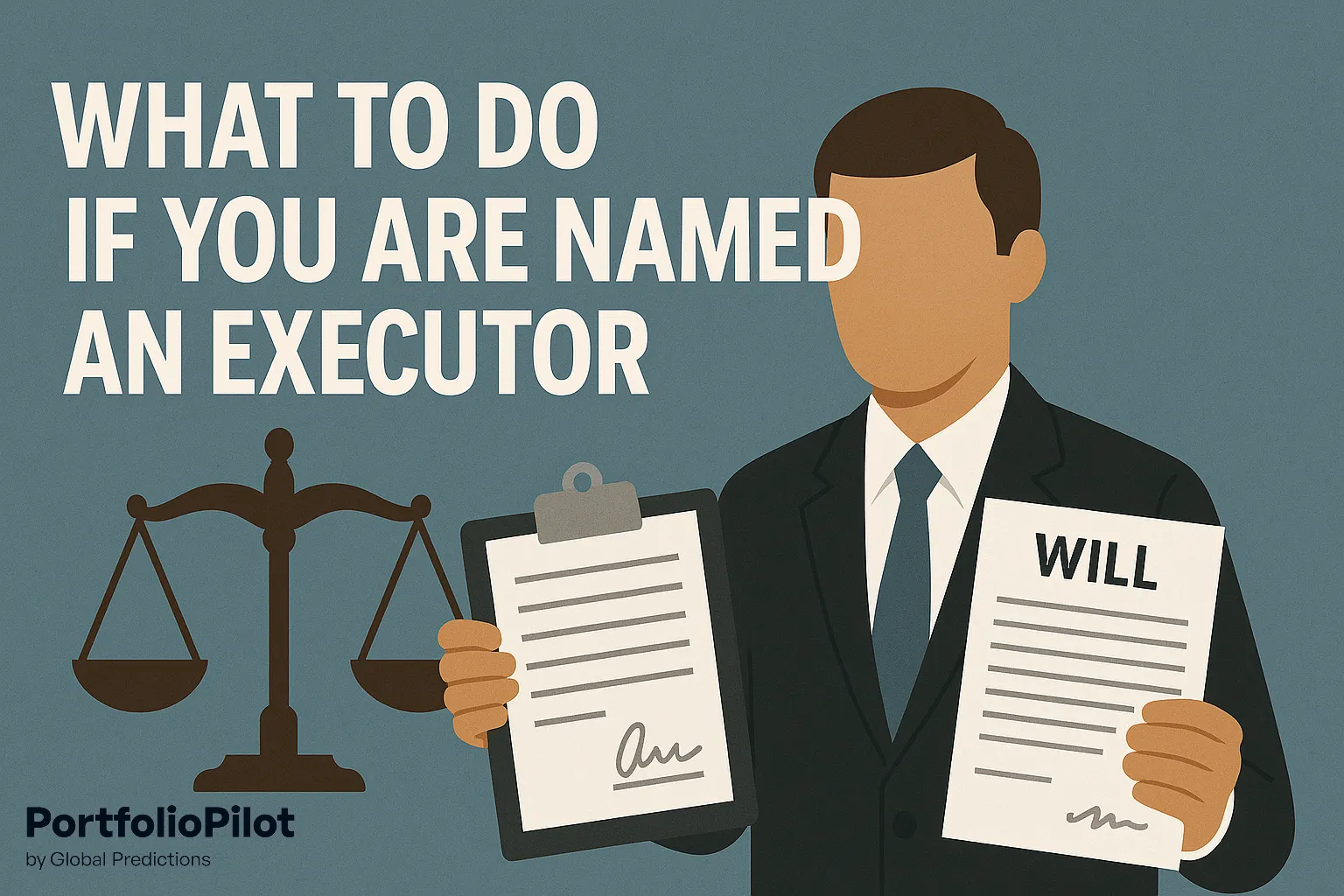What to Do If You Are Named an Executor

Being named an executor of a will carries significant responsibilities and requires careful navigation through legal and financial processes. If you find yourself appointed as an executor, it’s crucial to approach the role with diligence and integrity, balancing the legal obligations with the emotional realities of managing a deceased's estate.
Understanding Your Role
As an executor, you are tasked with managing the deceased's estate through the probate process - ensuring that debts and taxes are paid and that the remaining assets are distributed according to the will. The process involves a series of careful steps:
Get Organized
Gather all necessary documents including the will, financial statements, and real estate deeds. It’s also advisable to have several copies of the death certificate, which you will need for various official tasks.
Secure the Property
You will need to secure the deceased's property. This might involve changing locks, arranging for property maintenance, and managing utility services in the interim.
Appraise and Inventory the Estate
Creating a detailed listing and appraisal of the estate’s assets is vital. Remember to consider both tangible and digital assets, such as cryptocurrencies, which may require special handling.
Pay Debts and Taxes
Before distributing any assets, all outstanding debts and taxes must be resolved. Keeping accurate recordings of these transactions is vital to ensure a smooth process. Because executors typically have fiduciary duties, maintaining a clean paper trail - receipts, statements, and a simple log of decisions - can help reduce disputes and demonstrate that the estate was handled fairly.
Track estate planning items with a checklist for insurance, beneficiaries, and key details.
Distribute the Estate
Finally, you'll distribute the remaining assets to the beneficiaries as stipulated in the will. It is crucial to adhere strictly to the directives in the will to avoid legal challenges.
Practical Tips
Communication is key. Regularly updating beneficiaries about the estate’s status can mitigate potential misunderstandings and demonstrates transparency.
On a practical note, managing a diverse estate can be challenging, and considering tools like PortfolioPilot may help in obtaining a comprehensive view of the estate's financial situation. Of course, every situation is unique and you should evaluate their specific needs to find the right tools.
Digital Estates and Cryptocurrencies
The management of digital assets, including cryptocurrencies, requires special attention as it is far less common and there will be fewer resources available. If applicable, locate all digital wallets and understand the terms associated with each platform used by the deceased.
Professional Assistance
For complex estates, consulting with professionals, such as lawyers and accountants, may offer additional insights and assist in navigating complex aspects of the probate process. These experts can provide crucial guidance and help navigate the sometimes complex probate process.
Looking Ahead
Being named an executor is a substantial responsibility, and it might be beneficial to approach this role with careful consideration and diligence, reflecting on the specific requirements of the estate. Ensuring a clear, organized, and legal management of the estate not only respects the deceased's legacy but also safeguards the interests of all beneficiaries involved.
How optimized is your portfolio?
PortfolioPilot is used by over 40,000 individuals in the US & Canada to analyze their portfolios of over $30 billion1. Discover your portfolio score now:





.webp)
